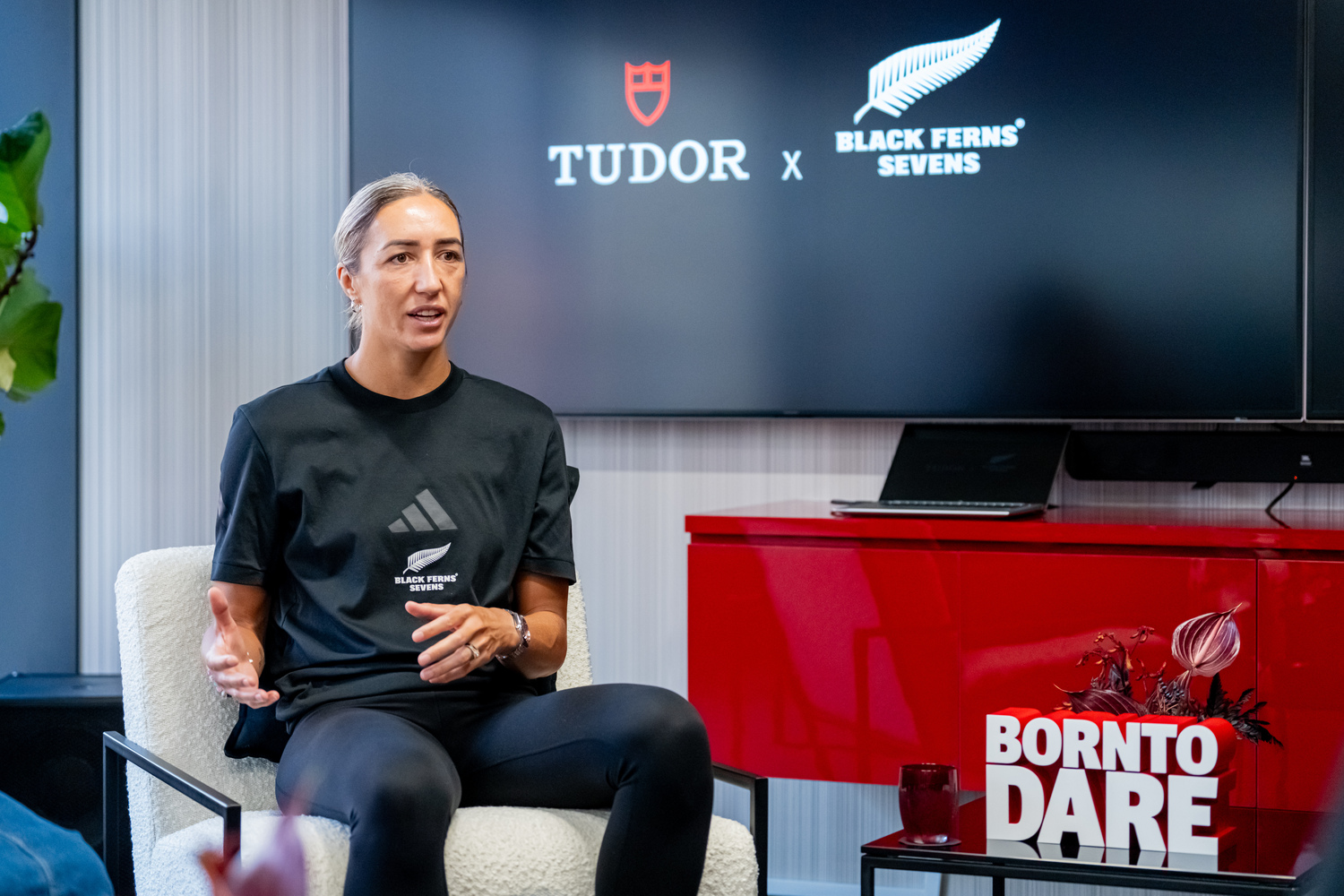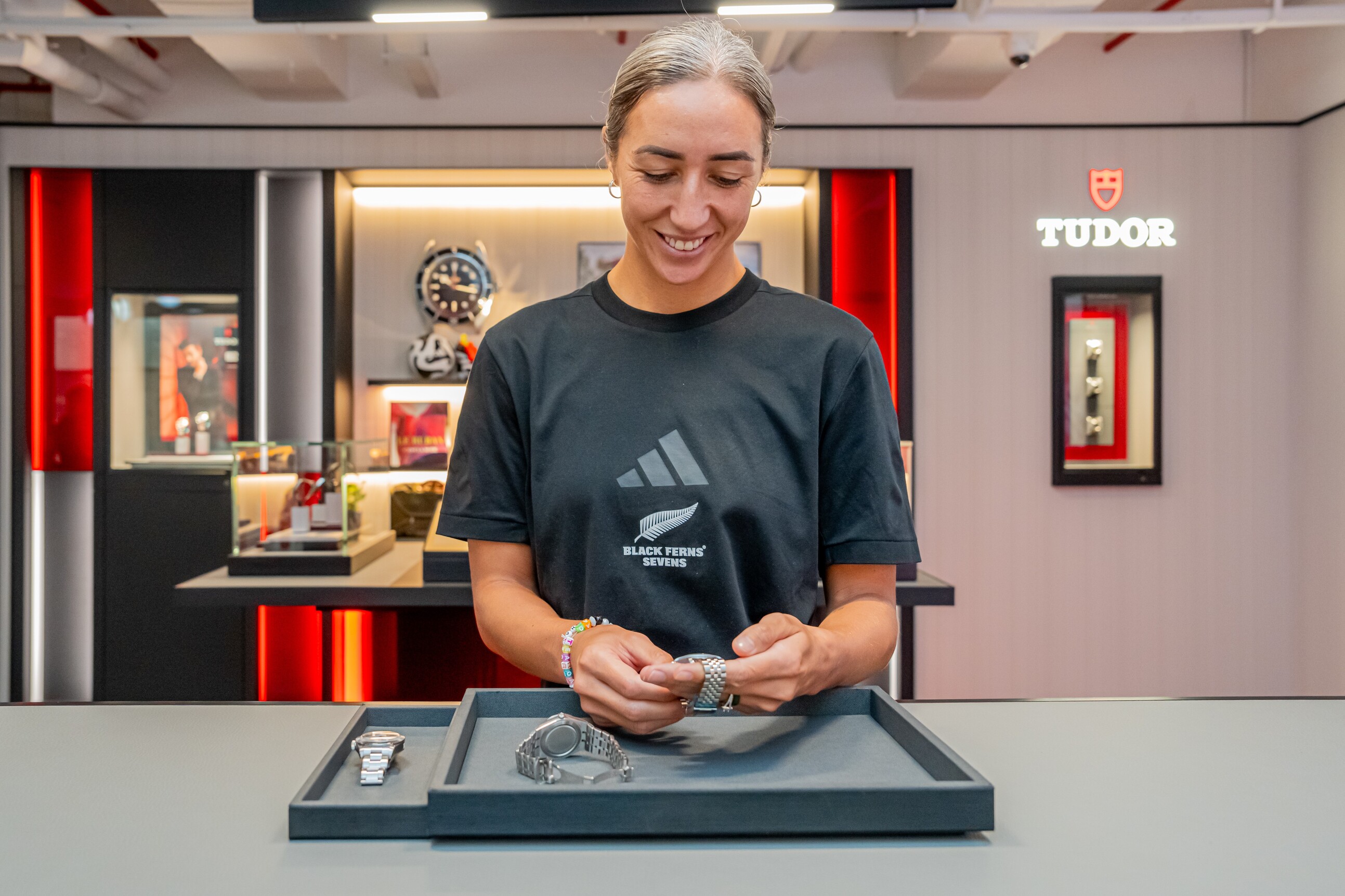If you’ve ever watched the New Zealand rugby teams perform their pre-match haka, a Māori war dance, you’d know that it is as awe-inspiring as it is intimidating, not to mention loud. The women’s teams have their own version, and it is no less ferocious. So to have to lean in just to hear the Black Ferns Sevens Captain Sarah Hirini speak (in a quiet room) was slightly disarming.
Sitting in the Tudor office ahead of the Singapore Rugby Sevens in April, the 32-year-old Kiwi didn’t look much like someone who has led one of the most dominant women’s teams in world rugby. Soft-spoken and relaxed, coloured bead bracelets sitting comfortably beside a sport-chic Tudor Royal on her wrist, she looks the antithesis of her on-field persona.
As she talks about how she embodies Tudor’s “Born to Dare” campaign slogan, it becomes clear that daring isn’t just about tackles and tries. It’s also about stepping into the spotlight while staying true to oneself. “Thirteen years ago, I didn’t think it was possible to travel the world playing a game I love, especially one that was so male-dominated,” she shares. “But rugby is the fastest-growing sport in New Zealand, especially for women. We have teams that are fully girls teams now, and I’m proud we’re continuing to break down those barriers—on and off the field.”
The Black Ferns Sevens are New Zealand’s national women’s rugby sevens team, and among the most decorated in the world. They’ve won multiple World Rugby Women’s Sevens Series titles and took home New Zealand’s first Olympic gold in the sport at Tokyo 2020. Most recently, they claimed the Singapore Rugby Sevens title after a 31–7 win over Australia in the final.
As all good leaders do, Hirini is quick to deflect credit to her teammates and the culture they’ve built. Still, her leadership stands out. At just 21, she was named captain and had to navigate her own doubts, as well as skepticism from older players. “When you wear the Black Ferns logo, you’re expected to win,” she says with a shrug. “That’s just what happens in New Zealand rugby. But I’m very competitive, so I don’t mind that.”
And if that were ever in question, consider this: she recovered from a major ACL injury in just seven months (where most take nine to 12) in time for the 2024 Paris Olympics. There, she helped secure another gold for her country. “In that final, I broke my face in five places and carried on.”
(Related: Preeti Arora Razdan on leading DIAGEO Southeast Asia)
That same mental toughness runs through her team, too. Hirini says they rarely need external motivation because they’re driven enough as it is. Her role, these days, is more about support: nurturing younger players “who are so much more talented than I’ve ever been, and who will take our game to a whole other level.”
She’s not doing it alone. Hirini has built a personal wellbeing team that includes a mental health professional, energy healers, a breathing specialist — and her husband. “It’s about having people around you who are good for you, not just someone who’s just going to sympathise with you,” she explains. “Sometimes I need to be checked.”
That perspective has been hard-won. As a younger player, she obsessed over losses. “I still remember games we lost 14 years ago, which is crazy,” she admits. “Back then, I’d come home and just run and run, thinking it wouldn’t get better. Now, I know I won’t win every game, and that’s okay. I’ll try, of course, but it’s more like, ‘Did we play well?’”
Because for Hirini, it’s about more than trophies. It’s about building something bigger. “Once you get more eyes on the game, people start to love it and invest in it,” she says. “Then our girls will keep thriving.”















 Back
Back
